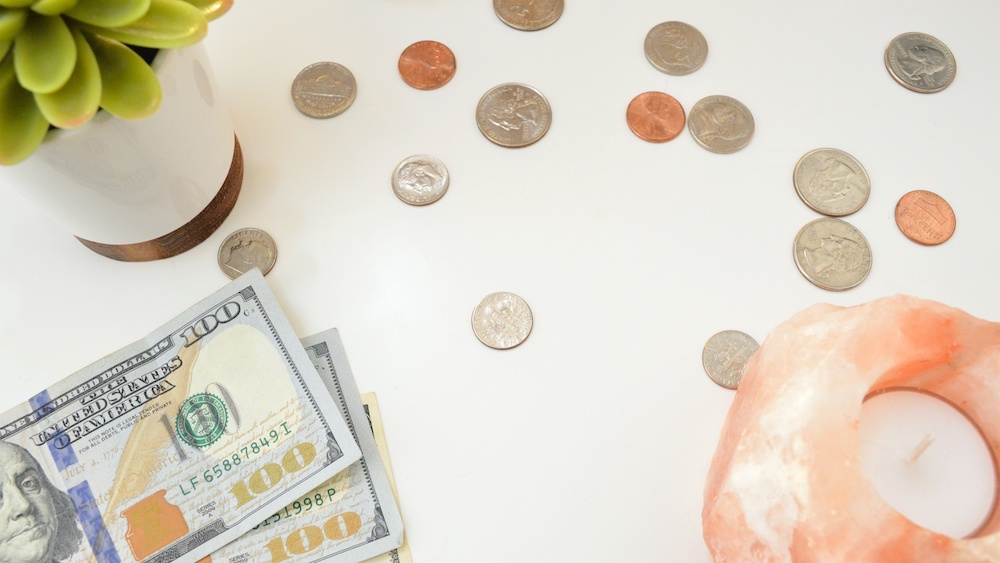If you’re interested in sharing your opinion on any cultural, political or personal topic, create an account here and check out our how-to post to learn more.
Opinions are the writer’s own and not those of Blavity's.
____
In 2017, I had just finalized my divorce, with two children under the age of 10, while living in an apartment I couldn’t afford. In the blink of an eye, I had somehow racked up $25,000 in debt. As someone who is a product of teenage pregnancy, my parents didn’t discuss finances when we were growing up, as that information was not made readily accessible to them. That’s what sparked my idea to set up The Broke Black Girl. I wanted to create a community that would be everything my mother needed when she was younger — something that would have made her experience, and mine, extremely different.
I saw how the Black community struggled with issues around personal finance, and not largely because of our own doing. I had an urge to fill this void by creating a safe space for Black women to gather and discuss not only financial issues, but also social and life matters that limited our economic survival.
In the beginning, everyone came in as the leader of their personal finance journey; they wanted to get free information, apply it to their own situations and use the resources from the group to focus on themselves. But what I noticed very quickly is how powerful we could be by working together. I’ve seen our group members shift in a huge way, from showing up as individuals, to showing up for their community. It’s been so eye-opening to see women who care about financial issues use our community as a platform to speak up, share their thoughts and know they are supported by other women who understand their struggles. The group has now grown to more than 70,000 members.
Something I’ve realized along the way is that while culturally relevant resources and support for personal finance is important, it only goes so far. There are broader economic policies that affect the wellbeing of our families. Even if we don’t see them, these are the strings that really touch our lives.
When COVID hit in early 2020, our community members were on the frontlines, experiencing just how painful it is when existing inequalities deepen. After all, Black women still earn just $0.63 for every dollar that white men earn. At that time, everyone was still focused on their own personal finances, but policy reform became an important subject matter.
One of the discussion topics that came up in our community was around childcare. During the pandemic, many daycare, childcare and schools closed down, which put a damper on everyone’s expenses, as the only available places were unaffordable. I did a poll in the group and found that people were paying more in daycare costs than they were in rent — around $1,500 a month.
It’s a subject that we, as a collective, really started to pay attention to in the past year, but as individuals, many struggled with childcare costs for decades. We’re now seeing group members who are wanting to create a movement to push for policy change. We never want to put our survival in the hands of politicians, but we understand the importance of having policies put in place to back up our request for economic survival. As African American women, we battle with moving forward while still being pushed further behind. But it makes me so happy to see our community of women become interested and more concerned about policy reform.
The message I want to help drive forward is for Black women everywhere to get more involved in their local communities. Whether you’re a high school student about to look at higher education options, or you’re a mom of two like me, it’s beholden on all of us to play an active role in advocating for policies that affect our lives. What we’re looking at now is how we can hone in on what we can do to hold elected officials accountable and keep them accountable for the long-term on issues such as minimum wage and pay inequality.
It will always be important for Black women to have a safe place to have honest — and sometimes hard — conversations about their own personal challenges with money and how it intersects with their family and careers, and the struggles they face in society. I’ve received thousands of success stories from our community of women who are using their stimulus checks to pay off debt, whether that be student debt, credit card debt or even car loans, and it just warms my heart. But we’re waking up to the reality that this needs to be paired with more consciousness about the role that local, state and federal level economic policies play in our ability to thrive — and how we need to be more hands-on to hold our leaders to account and make sure our interests are being properly represented. If you’re reading this, I hope you’ll join us on this journey.
____
Dasha Kennedy is a financial activist and Founder of The Broke Black Girl.
